Filter by

Constitutional challenges in the algorithmic society
Technologies have always led to turning points for social development. In the past, different technologies have opened the doors towards new phase of growth and change while influencing social values and principles. Algorithmic technologies fit within this framework. Although these technologies have positive effects for the entire society by increasing the capacity of individuals to exercise ri…
- Edition
- -
- ISBN/ISSN
- 9781108843126
- Collation
- x, 330 pages ; 24 cm
- Series Title
- -
- Call Number
- 342 MIC c

Cultural expertise, law, and rights:a comprehensive guide
Cultural Expertise, Law and Rights introduces readers to the theory and practice of cultural expertise in the resolution of conflicts and the claim of rights in diverse societies. Combining theory and case-studies of the use of cultural expertise in real situations, and in a great variety of fields, this is the first book to offer a comprehensive examination of the field of cultural expertise: …
- Edition
- -
- ISBN/ISSN
- 9781003167075
- Collation
- xiv, 360 pages; illustration
- Series Title
- -
- Call Number
- 340.115 HOL c

Harnessing public research for innovation in the 21st century:an internationa…
Universities and public research institutes play a key role in the innovation ecosystem. Many countries have implemented national strategies to support the commercialization of knowledge produced by public institutions, to help take their innovations and scientific breakthroughs to market and ultimately boost economic growth. Research bodies themselves have also introduced practices to support …
- Edition
- -
- ISBN/ISSN
- 9781108842792
- Collation
- 544 p
- Series Title
- -
- Call Number
- 607.2 ARU h

States-in-waiting:a counter narrative of global decolonization
States-in-Waiting narrates how postcolonial statehood did not fulfill the aspirations of many nationalist claimants demanding independence. Foregrounding little-known regions and the networks connecting them to global politics, Lydia Walker illuminates the un-endings of decolonization. This title is also available as Open Access on Cambridge Core
- Edition
- -
- ISBN/ISSN
- 9781009305815
- Collation
- xvi, 283 pages; illustration
- Series Title
- -
- Call Number
- 320.9 WAL s

Transforming food systems under climate change through innovation
Our food systems have performed well in the past, but they are failing us in the face of climate change and other challenges. This book tells the story of why food system transformation is needed, how it can be achieved, and how research can be a catalyst for change. Written by a global interdisciplinary team of researchers, it brings together perspectives from multiple areas including climate,…
- Edition
- -
- ISBN/ISSN
- 9781009227216
- Collation
- 254 p
- Series Title
- -
- Call Number
- 338.1 CAM t

Trade policy and gender equality
With a range of interdisciplinary contributions and national and regional case studies, this collection offers a systematic, up-to-date evaluation of the debate relating to international trade law, policy, and gender equality. It analyses recent trade negotiations and agreements through a gender lens. Available as Open Access on Cambridge Core
- Edition
- -
- ISBN/ISSN
- 9781009363716
- Collation
- xxvii, 402 pages
- Series Title
- -
- Call Number
- 343.08 BAH t

The environmental rule of law for oceans:designing legal solutions
Our oceans need a strong and effective environmental rule of law to protect them against increased pressures and demands, including climate change, pollution, fisheries, shipping and more. The environmental rule of law for oceans requires the existence of a set of rules and policies at multiple governance levels that appropriately regulate human activities at sea and ensure that pressures on th…
- Edition
- -
- ISBN/ISSN
- 9781009253741
- Collation
- xxxiii, 380 pages; illustration
- Series Title
- -
- Call Number
- 341.4 POZ t

The individual in the economic and monetary union:a study of legal accountabi…
The European Union's response to the financial crisis was designed in a way that prevented EU citizens from holding decision-makers accountable. This book reimagines legal accountability by focusing on the citizen, who should be at the centre of the common interest in the EU, with solidarity and equality as guiding principles.
- Edition
- -
- ISBN/ISSN
- 9781009207942
- Collation
- xxv, 220 pages
- Series Title
- -
- Call Number
- 346.402 BOB t

International courts versus non-compliance mechanisms:comparative advantages …
The effective implementation of treaties is essential. This book examines the advantages of non-compliance mechanisms (NCMs) versus that of international courts and tribunals to support treaty fulfilment. It brings together globally-recognised names in international law, human rights law, environmental and climate change law, and trade law.
- Edition
- -
- ISBN/ISSN
- 9781009373913
- Collation
- xx, 508 pages; illustration
- Series Title
- -
- Call Number
- 341.5 VOI i
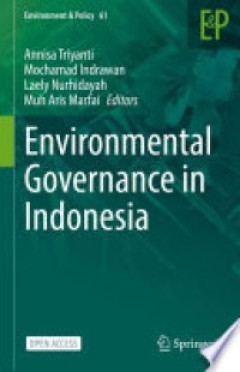
Environmental governance in indonesia
This open access book presents the state-of-the-art environmental governance research and practices in Indonesia. It offers a wide scope, covering different sectors (e.g., forestry, mining) and geographical landscapes (e.g., inland and coastal areas). This book engages with existing theories and frameworks, including Earth System Governance, Adaptive and Interactive Governance, among others to …
- Edition
- -
- ISBN/ISSN
- 9783031159046
- Collation
- XII, 513 p
- Series Title
- -
- Call Number
- 333.709598

Collective bargaining and the gig economy :a traditional tool for new busines…
This open access book investigates the role of collective bargaining in the gig economy. Despite the variety of situations covered by the term “gig economy”, collective agreements for employees and non-employees are being concluded in various countries, either at company or at branch level. Offline workers such as riders, food deliverers, drivers or providers of cleaning services are slowly…
- Edition
- -
- ISBN/ISSN
- 9781509956210
- Collation
- xvi, 320p.
- Series Title
- -
- Call Number
- 344.40189 COL m
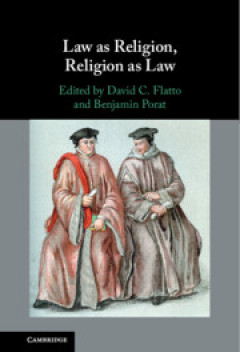
Law as Religion, Religion as Law
The conventional approach to law and religion assumes that these are competing domains, which raises questions about the freedom of, and from, religion; alternate commitments of religion and human rights; and respective jurisdictions of civil and religious courts. This volume moves beyond this competitive paradigm to consider law and religion as overlapping and interrelated frameworks that stru…
- Edition
- -
- ISBN/ISSN
- 9781108760997
- Collation
- vii, 404 p ; ill
- Series Title
- -
- Call Number
- 208.4 LAW

Law as Religion, Religion as Law
The conventional approach to law and religion assumes that these are competing domains, which raises questions about the freedom of, and from, religion; alternate commitments of religion and human rights; and respective jurisdictions of civil and religious courts. This volume moves beyond this competitive paradigm to consider law and religion as overlapping and interrelated frameworks that stru…
- Edition
- -
- ISBN/ISSN
- 9781108760997
- Collation
- vii, 404 p ; ill
- Series Title
- -
- Call Number
- 208.4 LAW
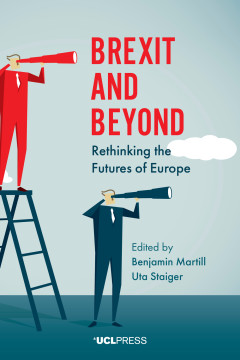
Brexit and beyond :rethinking the futures of Europe
Brexit will have significant consequences for the country, for Europe, and for global order. And yet much discussion of Brexit in the UK has focused on the causes of the vote and on its consequences for the future of British politics. This volume examines the consequences of Brexit for the future of Europe and the European Union, adopting an explicitly regional and future-oriented perspective m…
- Edition
- -
- ISBN/ISSN
- 9781787352759
- Collation
- xv, 291 p.
- Series Title
- -
- Call Number
- 341.24220941 BRE B
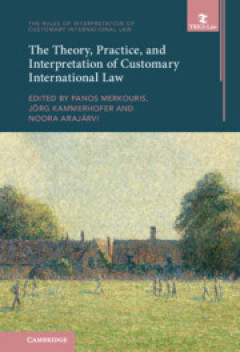
The Theory, Practice, and Interpretation of Customary International Law
Although customary international law (CIL) has been central to international law from its inception, it is often misunderstood. This edited volume remedies that problem by tracing the history of CIL and provides an in-depth study of its theory, practice, and interpretation. Its chapters tackle the big questions which surround this source of international law such as: what are the rules that reg…
- Edition
- -
- ISBN/ISSN
- 9781009025416
- Collation
- xxxiv, 648 p
- Series Title
- -
- Call Number
- 341 THE A
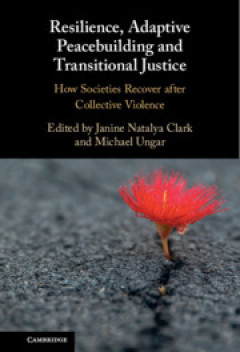
Resilience, Adaptive Peacebuilding and Transitional Justice How Societies Re…
Processes of post-war reconstruction, peacebuilding and reconciliation are partly about fostering stability and adaptive capacity across different social systems. Nevertheless, these processes have seldom been expressly discussed within a resilience framework. Similarly, although the goals of transitional justice – among them (re)establishing the rule of law, delivering justice and aiding rec…
- Edition
- -
- ISBN/ISSN
- 9781108919500
- Collation
- xvii, 310 p ; ill
- Series Title
- -
- Call Number
- 155.232 RES J
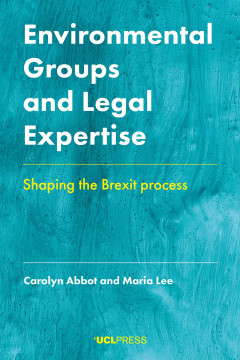
Environmental groups and legal expertise :shaping the Brexit process
Environmental Groups and Legal Expertise explores the use and understanding of law and legal expertise by environmental groups. Rather than the usual focus on the court room, it scrutinises environmental NGO advocacy during the extraordinarily dramatic Brexit process, from the referendum on leaving the EU in June 2016 to the debate around the new Environment Bill in the first half of 2020. T…
- Edition
- -
- ISBN/ISSN
- 9781787358584
- Collation
- xxi, 191 p.
- Series Title
- -
- Call Number
- 344.4046 ENV C
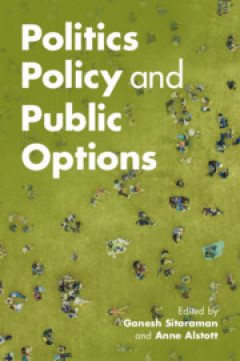
Politics, Policy, and Public Options
A public option is a government-provided social good that exists alongside a similar privately provided good. While the public option is typically identified with health care policy, public options have been a longstanding feature of American life in a variety of sectors, ranging from libraries to swimming pools. Public schools, for example, coexist alongside private schools. However, there is …
- Edition
- -
- ISBN/ISSN
- 9781108767552
- Collation
- ix, 186 p ; ill
- Series Title
- -
- Call Number
- 344.730316 POL G
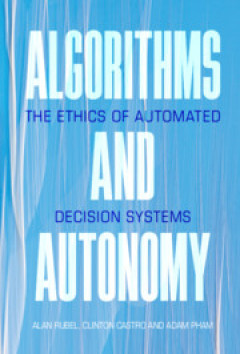
Algorithms and Autonomy :The Ethics of Automated Decision Systems
Algorithms influence every facet of modern life: criminal justice, education, housing, entertainment, elections, social media, news feeds, work… the list goes on. Delegating important decisions to machines, however, gives rise to deep moral concerns about responsibility, transparency, freedom, fairness, and democracy. Algorithms and Autonomy connects these concerns to the core human value of …
- Edition
- -
- ISBN/ISSN
- 9781108895057
- Collation
- viii, 218 p ; ill
- Series Title
- -
- Call Number
- 174.90063 ALG A
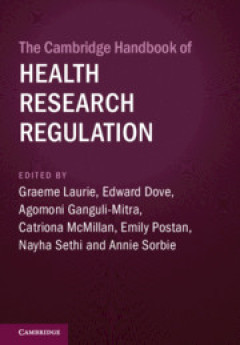
The Cambridge Handbook of Health Research Regulation
The first ever interdisciplinary handbook in the field, this vital resource offers wide-ranging analysis of health research regulation. The chapters confront gaps between documented law and research in practice, and draw on legal, ethical and social theories about what counts as robust research regulation to make recommendations for future directions. The Handbook provides an account and analys…
- Edition
- -
- ISBN/ISSN
- 9781108620024
- Collation
- xix, 444 p ; ill
- Series Title
- -
- Call Number
- 344.04196 CAM G
 Computer Science, Information & General Works
Computer Science, Information & General Works  Philosophy & Psychology
Philosophy & Psychology  Religion
Religion  Social Sciences
Social Sciences  Language
Language  Pure Science
Pure Science  Applied Sciences
Applied Sciences  Art & Recreation
Art & Recreation  Literature
Literature  History & Geography
History & Geography